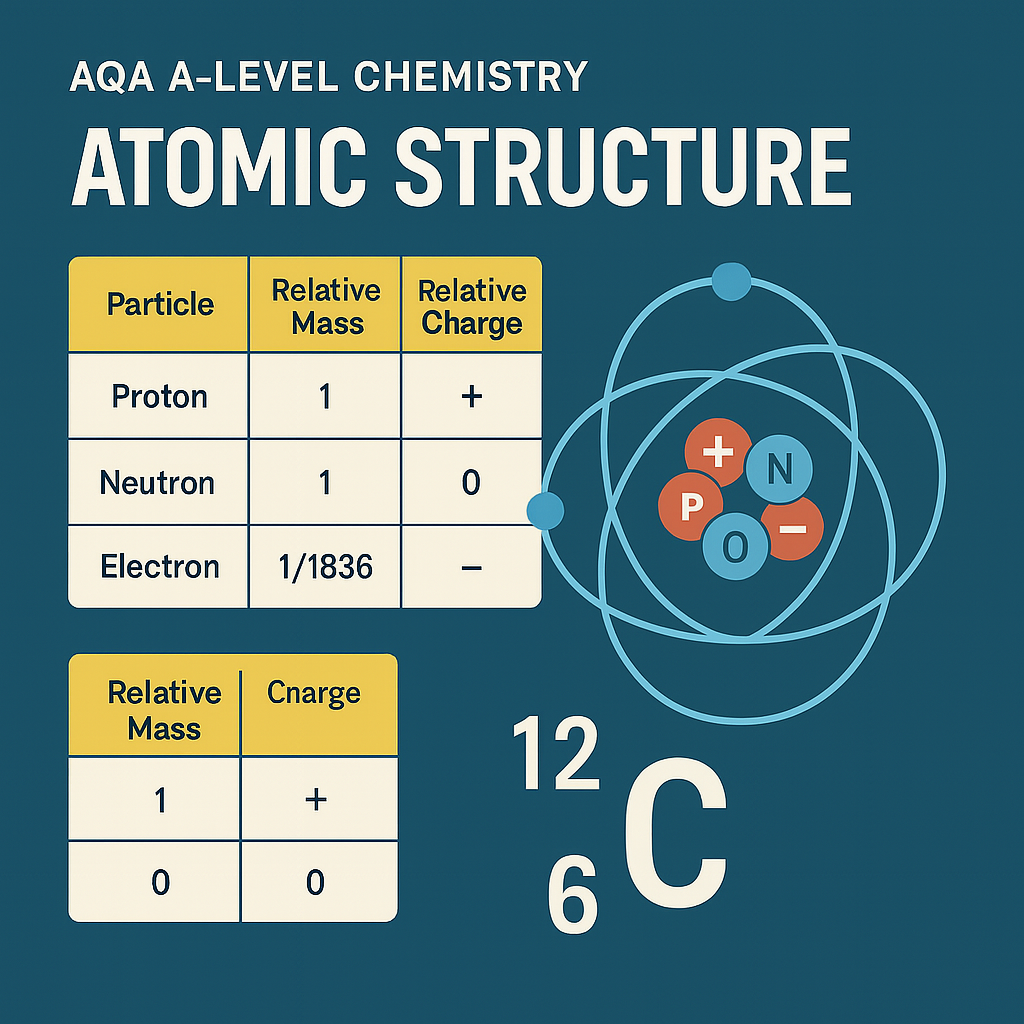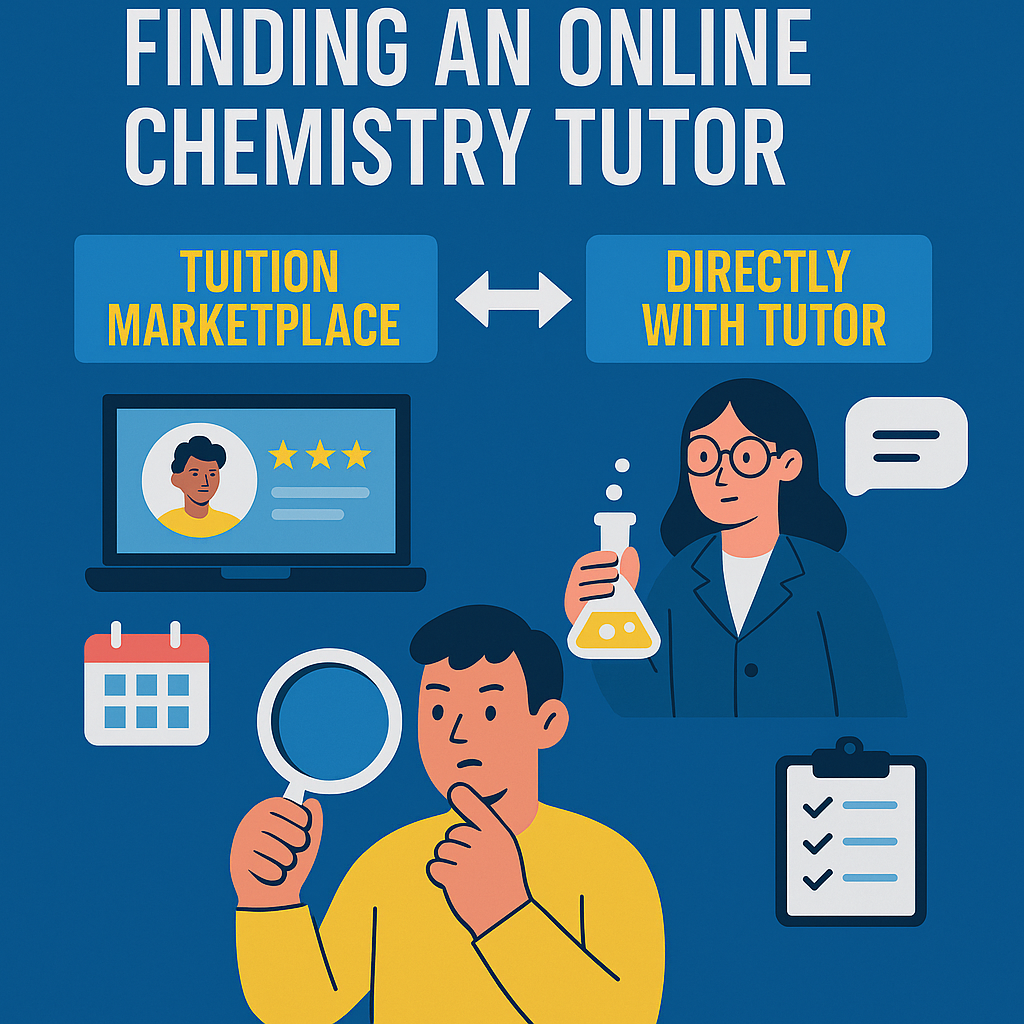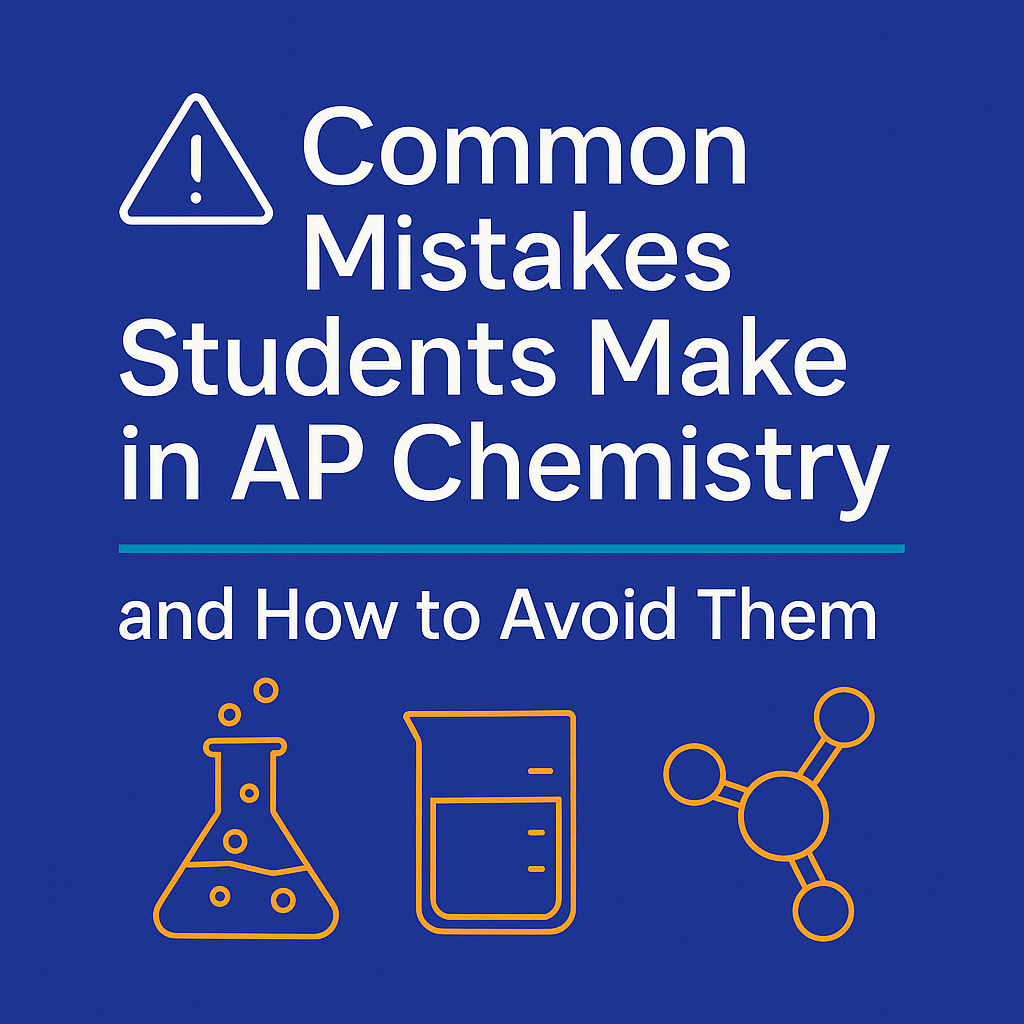How to Get an A* in A-Level Chemistry: The Complete Strategy Guide
You don’t need to feel confident to do well. You need to keep showing up and doing the work—especially when it’s uncomfortable.
Achieving an A* in A-Level Chemistry isn’t about being a genius—it’s about using the right methods, developing exam technique, and building a strong mindset for consistent performance under pressure.
Whether you're aiming to study medicine, natural sciences, or engineering, or you simply want to prove to yourself that you're capable of the highest grade, this guide walks you through everything you need to know to go from struggling with mole calculations to smashing 6-mark questions with confidence.
This is your blueprint. Let’s dive in.
1. Understanding the A* Standard
An A* in A-Level Chemistry requires more than just completing your revision and hoping for the best. You're expected to:
Understand all the specification content, including synoptic links between topics
Use terminology accurately and fluently
Apply your knowledge to unfamiliar contexts (especially in Paper 3 and practical-based questions)
Explain mechanisms and calculations clearly and precisely
Maintain consistency across ALL papers
📌 The A isn't about perfection—it's about consistently hitting the highest mark band, especially on the hardest questions.*
2. Know Your Specification Inside-Out
Before you revise anything, download your exam board’s specification. Whether you're doing AQA, OCR A/B, or Edexcel, your spec outlines exactly what you need to know—and nothing more.
Highlight every topic. Use it as:
A revision checklist
A self-assessment tracker
A way to map past paper questions by topic
🎯 Smart students revise what’s on the exam, not what’s just “in the textbook.”
3. Master Core Concepts Before Anything Else
You cannot get an A* without a rock-solid grasp of these:
Atomic structure & periodicity
Bonding and energetics
Redox and electrochemistry
Equilibrium (especially Kc, Kp)
Organic mechanisms and naming
Acids, bases, buffers & pH calculations
Rates and orders of reaction
NMR and spectroscopy
Study Tip:
Don’t rush to memorise. Instead, understand. For example:
❌ “The rate increases because temperature increases.”
✅ “A higher temperature increases the proportion of particles with energy ≥ Ea, so collisions are more frequent and more successful.”
🧪 Being able to explain why something happens is what turns a B student into an A* student.
4. 🧠 Use Active Recall & Spaced Repetition (Not Passive Revision)
Top students don’t waste time “revising” by staring at notes or highlighting textbooks. They use active recall, the scientifically proven method for boosting memory retention.
What is Active Recall?
It’s the process of trying to retrieve information from memory—not just reviewing it.
Instead of Re-reading notes, try:
Writing everything you remember on a blank page
Quizzing yourself with flashcards
Covering your notes and explaining the topic aloud
Combine that with spaced repetition, which involves revisiting topics over increasing intervals to cement long-term memory.
How to Implement:
Use Anki, Quizlet, or paper flashcards
Do topic recall once after learning, again 2 days later, then again after 1 week
Track flashcards by topic, using your exam board’s spec for structure
🧠 If you’re not struggling to remember something, you’re not learning it deeply.
5. Own the Required Practicals
A* students don’t memorise methods—they understand them.
Every exam board has Required Practicals (typically around 12), and you can be asked about them in any paper, especially Paper 3.
To secure marks:
Understand the independent, dependent, and control variables
Know why you do each step (e.g. why rinse a burette with the solution you're titrating?)
Learn how to handle sources of error, accuracy, reliability, and improvements
Be able to draw and interpret graphs, tables, and results
Use CGP’s Required Practicals workbook or your school’s lab book to make concise method and analysis notes.
🔬 You can score full marks even if you’ve never done the practical yourself—as long as you understand the science and the process.
6. Develop Bulletproof Exam Technique
Knowledge is essential—but exam technique is what gets you the marks.
A* students:
Read the command words carefully: "Explain" ≠ "Describe" ≠ "Evaluate"
Know how many points = how many marks (e.g., a 4-mark question usually needs 4 clear points)
Use the correct terminology—especially in organic chemistry, mechanisms, and bonding
Write structured 6-mark answers with clear logical steps or bullet points
How to Improve Exam Technique:
Regularly do past paper questions by topic
Always mark your answers with the official mark scheme
Learn to think like the examiner: what are they rewarding?
🧠 A students know the material. A* students know how to write it down the right way.
7. Work Through the Hardest Questions First
Many students revise what feels easy because it’s comforting. A* students deliberately go after the toughest content—because that’s where the real marks are.
Examples:
Equilibrium with Kc/Kp calculations under pressure
Multi-step organic synthesis (e.g. identifying reagents for conversion pathways)
Spectroscopy interpretation (e.g. deducing a compound from IR + mass spec + NMR data)
Buffer calculations with acidic/alkaline conditions
You’ll see these types of questions on every paper. They’re designed to differentiate A students from A/B students*.
How to Train for This:
Use Physics & Maths Tutor, Save My Exams, or Revision Science to filter only the hardest questions
Create a “Challenge Log” of questions you get wrong—and revisit them weekly
Build confidence by breaking each complex problem into steps and mastering it over time
🎯 To hit the top grade, spend time on the questions that other students avoid.
8. Track Your Weaknesses Relentlessly
Most students avoid what they find hard. A* students hunt it down and systematically improve.
If you want the highest grade, you need to know:
Where you lose marks
Which topics confuse you
Which question types trip you up (e.g. mechanisms? wordy questions? maths-heavy ones?)
Create a “Mistake Log”
Every time you:
Miss a mark on a past paper
Can’t explain a concept to someone else
Get something wrong in class
Write it down:
What was the topic?
What was the exact mistake? (Knowledge gap? Misread question? Misused term?)
What will you do differently next time?
Why it Works:
You stop repeating the same errors. You learn faster. You build exam confidence.
📘 Fixing 10 recurring mistakes is often all it takes to move from a B to an A.*
9. Practice With Purpose (Not Just Panic)
Doing past papers is important. But just doing them won’t help unless you’re being strategic.
A* Students Practise By:
Setting a timer and simulating real exam conditions
Focusing on quality over quantity—doing 3 questions well is better than 10 rushed
Reviewing their answers properly using the mark scheme and examiner reports
Re-attempting only the questions they got wrong, a few days later
Make every session count. If you find yourself saying “I revised all afternoon” but can’t remember what you improved, your revision isn’t working.
Weekly Breakdown Example:
2 days: Past paper questions on one topic
1 day: Full 60–90 minute paper under timed conditions
2 days: Flashcards, practical review, and content building
1 day: Mistake log + weak topic revision
🧠 Effective practice is focused, intentional, and self-aware.
10. Use Mark Schemes Like a Pro
Mark schemes aren’t just for marking—they’re a blueprint for writing answers the examiner will reward.
A* Students Use Mark Schemes To:
Identify command-word expectations (e.g. “explain” usually needs cause → effect)
Learn precise scientific phrasing (e.g. “delocalised electrons” not “free electrons” in bonding)
Understand why an answer gets the mark—and why a close-but-wrong one doesn’t
Develop sentence structures that match the examiner’s ideal response
What to Do:
Go through the AQA/OCR/Edexcel mark schemes side-by-side with your answers
Rewrite your incorrect answers using the exact wording from the mark scheme
Practice model writing—repeating the phrasing until it becomes natural
Bonus:
Read examiner reports. These tell you where most students lose marks and how to avoid common traps.
💬 Want to get an A*? Learn to answer questions the way the examiner wants to see them.
11. 🧪 Write Like a Scientist
Writing clearly and scientifically is often what separates an A from an A*.
In long-answer questions, precision is everything. Vague answers = vague marks.
Common Problems:
Using casual language: “the atom wants to...” instead of “the atom gains stability by...”
Waffling without a structure
Misusing key terms (e.g. “molecule” vs “compound”, “ion” vs “atom”)
Forgetting to link cause → mechanism → outcome
A* Writing Habits:
Define key terms when introducing them
Use logical sequencing—step-by-step answers that follow the process clearly
Start with cause (e.g. “increase in temperature”), then explain effect using correct terminology (e.g. “more particles have energy ≥ activation energy”)
Finish with the result or implication
Practice:
Pick a 6-mark question every week. Write it. Mark it. Rewrite it better. Then say it out loud to someone else.
🧾 Your goal is to sound like a scientist—not a student guessing what might be right.
12. Stay Calm Under Pressure: The Mindset of an A* Student
Mindset isn’t fluff. It’s the internal game you need to win to perform consistently under pressure—especially when exams get hard.
A* students aren’t always the most naturally gifted. They’re often the ones who know how to:
Stay focused under time pressure
Reset quickly after a tough question
Keep going even when motivation dips
Avoid panic during the real exam
Build Exam Resilience By:
Doing timed practice often
Simulating exam-day conditions (no notes, quiet room, full paper)
Practising deep breathing or mindfulness before you revise or sit a paper
Developing a mantra: “I’ve trained for this. I can handle this.”
And remember:
❌ Stressing out over mistakes = wasted energy
✅ Learning from mistakes = fuel for improvement
🧠 You don’t need to feel confident to do well. You need to keep showing up and doing the work—especially when it’s uncomfortable.
13. Recommended Study Tools & Resources
To reach the A* level, you need to use the best tools available. Here’s a curated list of what top students use consistently.
Past Papers & Mark Schemes:
Physics & Maths Tutor (Chemistry)
Save My Exams
Exam board websites (AQA, OCR, Edexcel)
Flashcards & Active Recall:
Anki (great for spaced repetition)
Quizlet
Handwritten flashcards for definitions, equations, colours, reagents
YouTube Channels:
MaChemGuy (AQA focus)
Allery Chemistry (OCR focus)
Cognito – concise and clear animations
Chemistry with Hazel – great walkthroughs and exam questions
Apps & Tools:
Notion / Google Docs – revision trackers, mistake logs
Pomofocus.io – Pomodoro-style timer for focused revision
Seneca Learning – interactive recap and quizzes (great for starting revision)
Books:
CGP A-Level Chemistry guides (exam-board specific)
Chemistry Made Easy: A-Level Chemistry Revision Guide
A-Level Chemistry for AQA Year 1 & 2 Student Book (Oxford)
14. How a Tutor Can Push You From an A to an A*
If you’re aiming for the top grade, you’ll hit a point where self-study alone isn’t enough.
A tutor—especially one with experience and expertise—can:
Identify gaps you don’t even realise you have
Train your exam technique for maximum marks
Simplify complex concepts you’re stuck on
Build your confidence when you hit setbacks
Keep you accountable and on track
With personalised support, your revision becomes smarter, your understanding deeper, and your progress faster.
🎓 Dr. Marguerite Quinn helps students go from a grade B or A to an A* with structured support, proven strategies, and a calm, confidence-building approach.
15. Final Thoughts: You Can Do This
Let’s be honest. A-Level Chemistry is hard.
It’s layered. It’s maths-heavy. It can feel overwhelming.
But here’s the truth:
If you’re reading this blog and you’re willing to show up, put the work in, and learn from your mistakes—you’ve already got what it takes to achieve an A*.
It’s not about cramming or being a “science person.”
It’s about building strong habits, using the right techniques, and believing that your progress is possible.
Your A* Journey Recap:
Master your spec and the fundamentals
Use active recall, not passive revision
Practise with past papers and fix your weak areas
Write with precision and clarity
Think like a scientist and perform under pressure
Get expert feedback and support when you need it
Ready to Get an A* in Chemistry?
Book a 15 mins consultation with Dr. Marguerite Quinn and receive personalised support to help you turn ambition into achievement. Whether you’re aiming to secure a university place or prove to yourself what you’re capable of, we’re here to help you every step of the way.





Understand AQA A-Level Chemistry Section 3.1.1.2 on mass number and isotopes. Learn key definitions, isotope notation, calculations, and how this topic builds your scientific and exam skills.